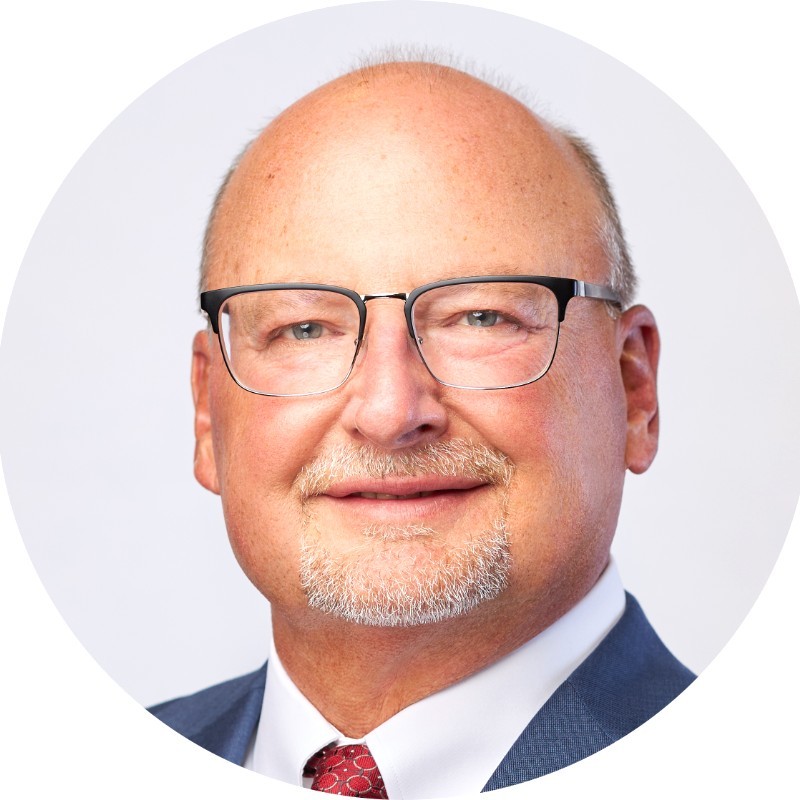Click here to listen to full podcast
Robert Budsock serves as the President and CEO of Integrity House, a position he has held since February 2012. With nearly four decades of experience at Integrity House, Robert has been instrumental in shaping the organization’s mission and expanding its impact on the community. Under his leadership, Integrity House has become a leading provider of addiction treatment and rehabilitation services, known for its compassionate and comprehensive approach.
Starting his career with Integrity House in October 1984, Robert initially served as Chief Operating Officer for over 27 years. During this time, he developed and implemented numerous programs aimed at reducing stigma and improving outcomes for individuals struggling with addiction. His deep understanding of social services and program development has been endorsed by colleagues and industry professionals alike, highlighting his expertise and dedication to the field.
Robert’s tenure as CEO is marked by his exceptional managerial skills, unwavering determination, and ability to inspire and lead his team. Colleagues praise his effective follow-up, excellent leadership qualities, and strong communication skills. His passion for helping people has significantly influenced the treatment landscape, making a lasting impact on countless lives.
Founded in 1968, Integrity House stands as a cornerstone of comprehensive addiction treatment in New Jersey, offering CARF accredited services tailored to individuals and families seeking lasting change. With a commitment to client-centered care and a holistic approach, Integrity House provides a full continuum of services, including outpatient, residential, and supportive housing, alongside ongoing prevention and education initiatives, fostering sustainable paths to recovery and sobriety for those in need. As one of the largest non-profit providers in the state, Integrity House remains dedicated to fostering positive, long-term lifestyle changes and community well-being.
OGC Solutions® LLP: Welcome to the Think Factory podcast. I’d like to welcome to the show the longtime CEO of Integrity House, a Newark based addiction service provider, and a person that I am proud to call my friend. And that’s Robert “Bob” Budsock. Bob, welcome to The Think Factory.
Bob: Thank you. Pleasure to be with you today.
OGC Solutions® LLP: Wonderful. First, tell me about Integrity House. What does the organization do?
Bob: So I’ll start with the founding of Integrity House. We were founded in 1968, which is 56 years ago. We started as a addiction treatment agency where we would work with individuals that were having difficulty staying sober and help them get their life back on track. We’ve evolved over the years where we not only an addiction treatment agency, but we’re also licensed to provide mental health care and primary care services. So in addition to those three pillars, the mental health, the addiction treatment and the primary care, we also look at the supportive services that are needed for people who are wanting to get up to establish a life without the use of drugs and in the support of houses could include job training, education, family groups and everything else that’s required to to sustain recovery.
OGC Solutions® LLP: Right. I think when you and I talked last, you had described it. I really like the way you describe it. That Integrity House has a full continuum of care for addiction treatment. So can you describe what you mean by a full continuum of care?
Bob: Yes, I could. And I’m going to use the Asam criteria. That’s the American Society of Addiction Medicine and how they describe the full continuum of care. So the most intensive level of care is actually called 4.0, and that is a medical detox, a supervised medical withdrawal. And we provide those services through our partnership with Bergen New Bridge Medical Center. And then moving back to Integrity House, we have short term residential treatment, which is a 3.7 level of care. We have long term residential treatment, which is based on 3.5 level of care. We have outpatient treatment which falls in the same two level. We have outpatient and we have intensive outpatient. We also have do prevention services which reform the same level, one level of care. So what happens is an individual can enter services either out of the 4.0 or possibly in a outpatient setting, which is a simple two level And depending upon their needs, they go up and down that continuum of care. The best case scenario is that somebody comes for services. We identify the appropriate level of care which is residential, or let’s say it’s outpatient. And as they progress through treatment, they will continue to need a less intense level of care and then eventually just need to maintain their sobriety through healthy daily living.


Comments are closed